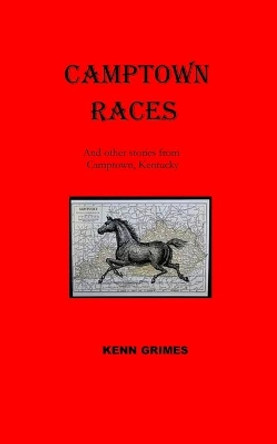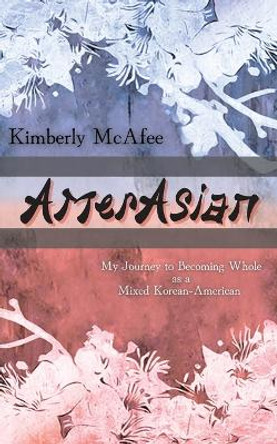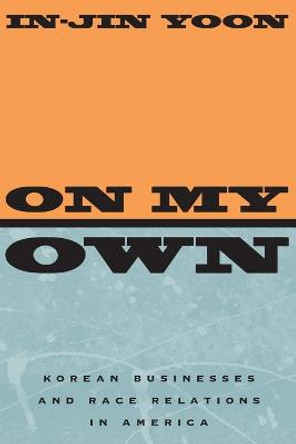During the 1950s, thousands of mixed race children were born to US servicemen and local Korean women in US-occupied South Korea. Assumed to be the progeny of camptown women--or military prostitutes--their presence created a major problem for the image of US democracy in the world at a time when the nation was vying for Cold War allegiances abroad. As mixed race children became a discernible population around US military encampments in South Korea, communists seized upon the image of those left behind by their GI fathers as evidence of US imperialism, irresponsibility, and immorality in the Third World. Aware of this and keen to redeem the image of America's intervention in Asia, US citizens spearheading the postwar recovery of recently war-torn South Korea embarked upon a campaign in US Congress to bring as many of these children home. By the early 1960s, American philanthropists, missionaries, and voluntary agencies had succeeded in constructing the figure of the abandoned and mistreated Amerasian orphan to lobby US Congress for the quick passage of intercountry adoption laws. They also gained the sympathies of American families, eager to welcome these racially different children into the intimate confines of their homes. Although the adoptions of Korean "Amerasian" children helped to promote an image of humanitarian rescue and Cold War racial liberalism in 1950s and 1960s America, there was one other problem: many of these children were not actually orphans, but had been living with their Korean mothers in the camptown communities surrounding US military bases prior to adoption. Their placements into American families relied upon dehumanizing constructions of these women as hardened prostitutes who did not even love their own children, South Korea as a backwards, racist society bent-up on Confucian tradition and pure bloodlines, and the United States as a welcoming home in an era of intense racial segregation. The First Amerasians tells the powerful, oftentimes heartbreaking story of how Americans created and used the concept of the Amerasian to remove thousands of mixed race children from their Korean mothers to adoptive US homes during the 1950s and 1960s. In doing so, Yuri W. Doolan reveals how the Amerasian is not simply a mixed race person fathered by a US serviceman in Asia nor a racial term used to describe individuals with one American and one Asian parent like its popular definition suggests. Rather, the Amerasian is a Cold War construct whose rescue has been utilized to repudiate accusations of US imperialism and achieve sentimental victories in the aftermath of wars not quite won by the military. From such constructions, Americans lobbied Congress twice: first, in the 1950s to establish international adoption laws that would lead to the placement of hundreds of thousands of Korean children in the United States, then, later in the 1980s, when the plight of mixed race Koreans would be invoked again to argue for Amerasian immigration laws culminating in the migrations of tens of thousands of mixed race Vietnamese and their relatives. Beyond Cold War historiography, this book also shows how in using the figure of the mistreated and abandoned Amerasian in need of rescue, Americans caused harm to actual people--mixed race Koreans and their mothers specifically--as children were placed into adoptive homes during an era where few regulations or safeguards existed to protect them from abuse, negligence, or racial hostilities in the US and many Korean mothers were coerced, both physically and monetarily, to relinquish their children to American authorities.
About the AuthorYuri Doolan is Assistant Professor of History and Women's, Gender, and Sexuality Studies and the inaugural chair of Asian American and Pacific Islander Studies at Brandeis University.
ReviewsAs a biracial Korean American scholar, I thought I was familiar with my own history until I read Yuri Doolan's book. Written in clear, accessible language, The First Amerasians is a meticulously researched analysis of the geopolitical construction of the 'Amerasian' and an incisive critique of US humanitarianism after the Korean War. At turns subtle and scathing, this book exposes the violence beneath the rescue narratives and performs a kind of reparation for the families separated by that violence. It is a loving tribute to a people as much as it is an exceptional work of scholarship. * Grace M. Cho, Author of Tastes Like War *
The First Amerasians offers a bold counternarrative to existing discourses about the origins and impact of Korean transnational adoption. Yuri Doolan not only provides an eye-opening account of how mixed-race Korean children were separated from their first mothers, but also how their adoptions by foreign families left a fraught legacy that adopted individuals continue to grapple with today. * Deann Borshay Liem, Documentary filmmaker *
Book InformationISBN 9780197534380
Author Yuri W. DoolanFormat Hardback
Page Count 264
Imprint Oxford University Press IncPublisher Oxford University Press Inc
Weight(grams) 508g
Dimensions(mm) 156mm * 235mm * 20mm









